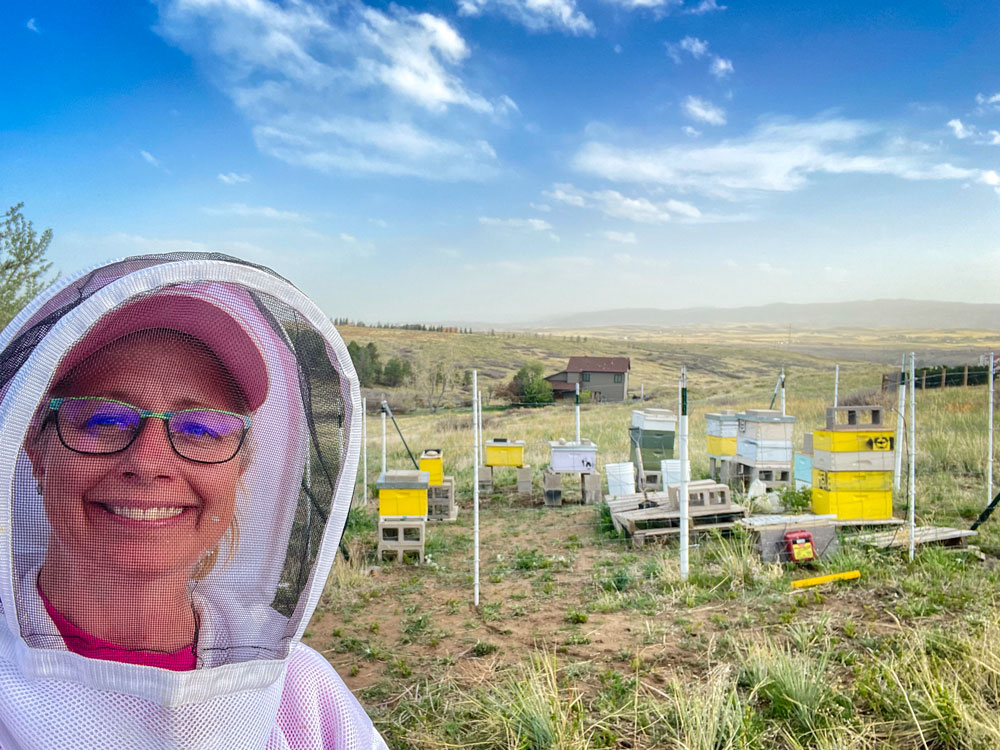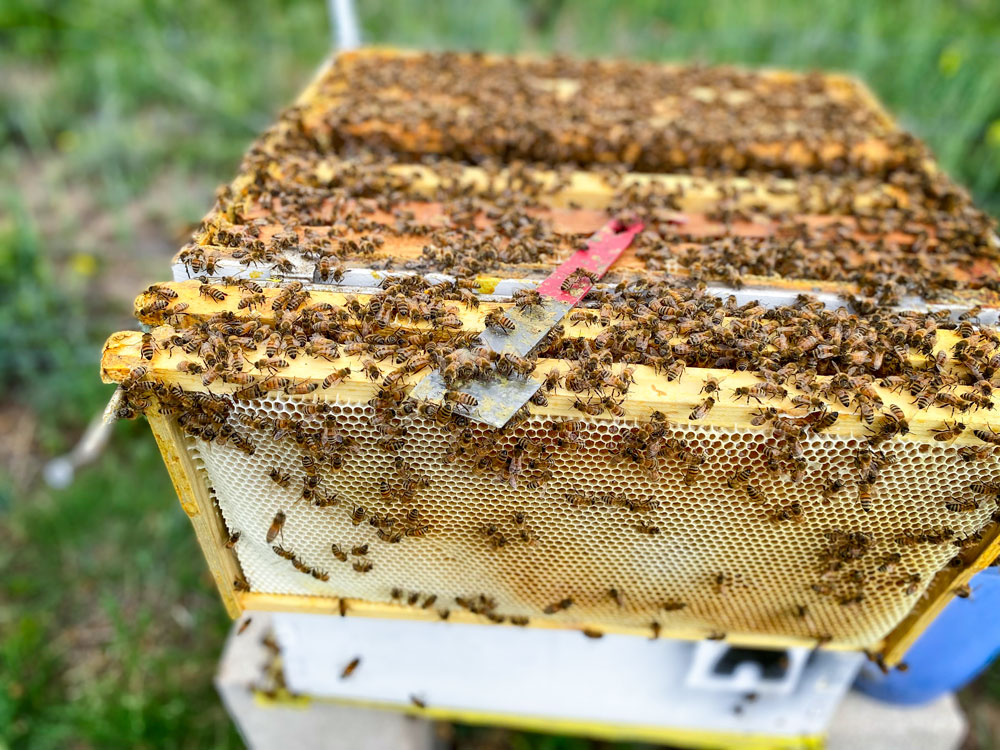The power of pollinators

Sandy Hocomb manages a local apiary, including several beehives. The apiary is protected from four-legged intruders with an electric fence.
As major pollinators, bees are an important part of our ecosystems. Sandy Holcomb is passionate about honeybees. She keeps an apiary with multiple hives near Chatfield State Park. The apiary is surrounded by wildflowers and is protected by an electric fence to deter predators like skunks and bears.
Sandy is a park ranger and through her work, educates the public as a local beekeeper. “Colorado is home to around 1,000 bee species,” she explained. “Many are not honey producers, or live in hives, but they are power pollinators for small farms and wild plants, often even more effectively than honeybees.”
Working together with the landowner, Sandy and her compatriots make sure the hives have everything they need to thrive, including a water supply. “Together we handle basic beekeeping tasks: inspecting hives, capturing spring swarms, equipment maintenance, keeping a bee journal and tracking the season,” Sandy explained.
Sandy is also active in the High Land Beekeeping Club (HLBKC) in Littleton, which primarily serves southwest Denver. Twenty years ago, she joined HLBKC as a founding member and volunteered as treasurer. The club promotes bee knowledge and beekeeping education and public awareness, hosts forums and is closely affiliated with the Colorado State Beekeepers Association (CSBA).
Short of backyard beekeeping, there are several ways for citizens to support bees. Planting more native flowers and switching out sections of grass for pollinator-friendly plants can be a simple way to help. Choosing regional native flowers instead of exotic and hybrid varieties is beneficial, as modified or non-native species disrupts the natural relationship between pollinators and plants.
Sandy suggests looking into reputable resources for more information about beekeeping or pollinator-friendly planting: the CSU Extension Office, the Colorado Native Plant Society and the People and Pollinators Action Network. Bee clubs are also a fun way to get involved.
Beekeeping is generally allowed in Douglas County and the City of Castle Pines, with some limitations. Check your HOA bylaws if backyard hives could be your next hobby.
“Bees are remarkably intelligent, with complex social hive structures including division of labor, their ability for facial recognition and even performing simple math,” Sandy said.
For more information, visit coloradobeekeepers.org or highlandbeekeeping.com. For questions about having a hive in Castle Pines, email information@castlepinesco.gov.

Bees exposed in an open hive near Chatfield State Park.
By Celeste McNeil; photos courtesy of Sandy Holcomb